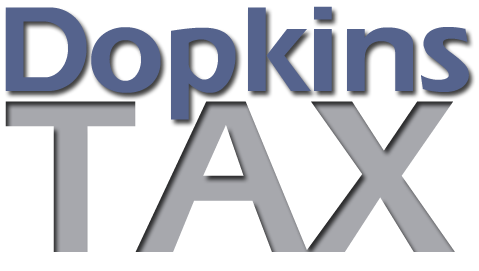Signed Dec. 18th, PATH Act Addresses Tax Credits & Tax Extenders
December 21, 2015 | Authored by Jill E. Colombo CPA

Businesses
Research
At the top of the list for businesses is the research credit that has been permanently extended and made creditable against other taxes. In addition, for tax years that begin after December 31, 2015, eligible small businesses ($50 million or less of gross receipts) may claim the credit against their alternative minimum tax liability. And for tax years beginning on or after December 31, 2015, small (less than $5 million in gross receipts) startup businesses may claim up to $250,000 per year of the credit against their FICA tax liability.
S Corporations
Another item of note in the business tax area is the permanent extension of the reduction in S corporation recognition period for built-in gains. The recognition period has been made permanent at 5 years as temporarily extended the past few years versus the original 10 year period for C corporations looking to make an S corporation election.
Depreciation and Expensing
A significant area that was made permanent relates to depreciation expensing elections. Section 179 was made retroactive and permanent at $500,000 for 2015 with a $2 million phase-out amount. These amounts will be indexed for inflation. Expensing of computer software is made retroactive and permanent. The 15-year write-off period for qualified leasehold improvement and retail improvements and restaurant property are made permanent. Also, bonus depreciation has been extended through 2019 at the following rates:
- 50% bonus depreciation on qualified property for years 2015-2017
- 40% bonus depreciation on qualified property for year 2018 and
- 30% bonus depreciation on qualified property for year 2019.
In addition, the enhanced first-year depreciation cap on autos and trucks was extended through 2019 as well.
The Work Opportunity Tax Credit (WOTC)
Now extended through 2019 and expanded, the WOTC allows employers to hire members of certain targeted groups to get a credit against income tax of a percentage of first-year wages up to $6,000 per employee. The Act retroactively expands the credit to apply to eligible veterans and non-veterans who begin to work for the employer before Jan 1, 2019.
Other Business Credits Made Permanent
There were many other business credits that were made permanent under the PATH Act.
- Exemption for RIC Interest-Related Dividends and Short-Term Capital Gains Dividends Permanently Extended
- Treatment of RIC As Qualified Investment Entity Permanently Extended
- Exclusion of 100% of Gain on Certain Small Business Stock Permanently Extended
- Lower Shareholder Basis Adjustment for Charitable Contributions by S Corporations Permanently Extended
- Special Rule for Payments to a Charity From a Controlled Entity Permanently Extended
- Liberal Rule for Corporate Qualified Conservation Contributions Permanently Extended and Expanded
- Enhanced Deduction for Food Inventory Permanently Extended and Expanded
- Subpart F Exception for Active Financing Income Permanently Extended
- Differential Wage Payment Credit for Employers Permanently Extended and Expanded
Other Business Credits Extended
Select tax credits were only extended for certain time periods.
- Look-Through Rule for Payments Between Related CFCs under Foreign Personal Holding Company Income Rules Extended Through 2019
- New Markets Tax Credit Extended Through 2019
- Indian Employment Credit Extended Through 2016
- Domestic Production Activities Deduction Rules for Puerto Rico Extended Through 2016
- Empowerment Zone Tax Breaks Extended Through 2016
Medical Device Excise Tax
A moratorium was placed on the Medical Device Excise Tax for sales during calendar years 2016 and 2017. The 2.3% excise tax will not be applied on the sale of taxable medical devices.
Individuals
Child Care
The enhanced child tax credit was made permanent by setting the threshold dollar amount at an unindexed $3,000 for tax years beginning after the date of enactment (December 18, 2015). The child tax credit allows taxpayers to claim a $1,000 tax credit for each qualifying child under age 17, that the taxpayer can claim as a dependent. The credit phases out when income exceeds certain thresholds. Under pre-Act law, through 2017, the threshold dollar amount was an unindexed $3,000 and was scheduled to rise to $10,000 indexed for inflation.
American Opportunity
Made permanent, the American Opportunity Tax Credit enhances the Hope Scholarship Credit up to $2,500 for four years of post-secondary education, and increased the beginning of the phase-out amounts to $80,000 (single) and $160,000 (married filing jointly).
Itemize Sales Tax
Taxpayers who are eligible to itemize deductions can continue to take advantage of the deduction for state and local sales taxes paid in lieu of a deduction for state and local income taxes.
Other Individual Tax Credits Made Permanent
- Enhanced Earned Income Credit is now permanent
- Above-the-Line Deduction for Educator Expenses Made Permanent
- Increase in Excluded Employer-Provided Mass Transit and Parking Benefits Made Permanent
- Liberalized Rules for Qualified Conservation Contributions Made Permanent
- Nontaxable IRA Transfers to Eligible Charities Made Permanent
Individual Tax Credits Extended
Higher Education
A few individual tax provisions were only extended through 2016. For example, the above-the-line deduction for higher education expenses was retroactively extended through 2016. For tax years beginning after December 31, 2014, the maximum deduction is $4,000 for an individual whose AGI doesn’t exceed $65,000 (single)/$130,000 (joint) or $2,000 for individuals who don’t meet the above AGI limit, but whose AGI doesn’t exceed $80,000 (single)/$160,000 (joint).
Mortgage Insurance Premiums
Mortgage Insurance Premiums as Deductible Qualified Residence Interest Retroactively Extended Through 2016. Effective for amounts paid or accrued after Dec. 31, 2014, the Act retroactively extends this provision for two years so that a taxpayer can deduct, as qualified residence interest, mortgage insurance premiums paid or accrued before Jan. 1, 2017 (and not properly allocable to any period after 2016).
In addition, the exclusion for discharged home mortgage debt was retroactively extended through 2016.
Energy Property
The nonbusiness energy property credit was retroactively extended for two years, which applies to property placed in service after December 31, 2014 and before January 1, 2017. The Act allows a credit of 10% of the amount paid or incurred by the taxpayer for qualified energy improvements, subject to new requirements, up to $500 lifetime.
Other energy provisions that were extended include:
- Alternative Fuel Vehicle Refueling Property Credit Retroactively Extended
- Credit for 2-Wheeled Electric Plug-in Vehicles Retroactively Extended
- Second Generation Biofuel Producer Credit Retroactively Extended
- Biodiesel and Renewable Diesel Tax Credits Retroactively Extended
- Biodiesel Mixture Excise Tax Credit Retroactively Extended
- Biodiesel Mixture Excise Tax Refund Provisions Retroactively Extended
- Production Credit for Indian Coal Facilities Retroactively Extended and Modified
- Renewable Electricity Production Credit Extended
- Facility’s Construction Date Extended for Election to Take Energy Credit Instead of Production Tax Credit
- New Energy Efficient Home Credit Extended
- Bonus Depreciation for Second Generation Biofuels Property Extended
- Energy Efficient Commercial Building Property Deduction Modified and Extended
- Deferral of Gain on Sales of Electric Transmission Property Retroactively Extended
- Alternative Fuels & Mixtures Excise Tax Credit Modified and Extended
- Credit for Fuel Cell Vehicles Retroactively Extended
- Exclusion from Gross Income of Certain Clean Coal Power Grants to Non-corporate Taxpayers
Other Provisions
The PATH Act also addressed reforms in Real Estate Investment Trust (REITs) and included many non-extender tax provisions, including:
- Exclusion for Work Colleges Program Payments – amounts received in tax years beginning after date of enactment, the Acts exempts from gross income any payments from certain work-learning-service programs that are operated by a work college.
- Delayed Refunds Where Taxpayer Claims Earned Income or Additional Child Credit – effective for credits or refunds made after Dec. 31, 2016, no credit or refund for an overpayment for a tax year will be made to a taxpayer before the 15th day of the second month following the close of that tax year (generally February 15), if the taxpayer claimed the EITC or additional child tax credit on the tax return.
- Rollover Allowed From Retirement Plans to SIMPLE Accounts – for contributions after the date of enactment, the Act allows a taxpayer to roll over amounts from an employer-sponsored retirement plan (e.g., 401(k) plan) to a SIMPLE IRA, if the plan has existed for at least two years.
- Requirements for the Issuance of Individual Taxpayer Identification Numbers – Individuals who were issued ITINs before 2013 are required to renew their ITINs on a staggered schedule between 2017 and 2020. An ITIN will expire if an individual fails to file a tax return for three consecutive years.
- Accelerated Due Dates for W-2, 1099, Etc. forms – The Act requires forms W-2, W-3, and returns to report non-employee compensation (e.g., Form 1099-MISC), to be filed on or before January 31 of the year following the calendar year to which such returns relate.
- Changes to 529 Plan Distribution Rules
- Residency Requirement Eliminated for ABLE Programs
- Prevention of Extension of Tax Collection Period For Certain Armed Forces Members
- New Exclusion for Wrongfully Incarcerated Individuals
- Safe Harbor for De Minimis Errors on Information Returns and Payee Statements
- Agricultural Research Organizations Are 50% Charities
- Clarification of Valuation Rule for Charitable Remainder Unitrust’s Early Termination
- Alternative Tax for Small Insurance Companies Modified
- Alternative Tax Rate for Corporation’s Timber Gains
How do the changes in the PATH Act affect you and/or your business? Contact Jill Colombo at jcolombo@dopkins.com or your Dopkins Tax Advisor to find out.

About the Author
Jill E. Colombo CPA
Jill specializes in corporate tax compliance and preparation services for businesses and individuals. She has significant experience with multi-state tax corporate issues, employee benefit plan compliance and international tax matters. Her projects include tax planning, international compliance and tax structure consulting services.

